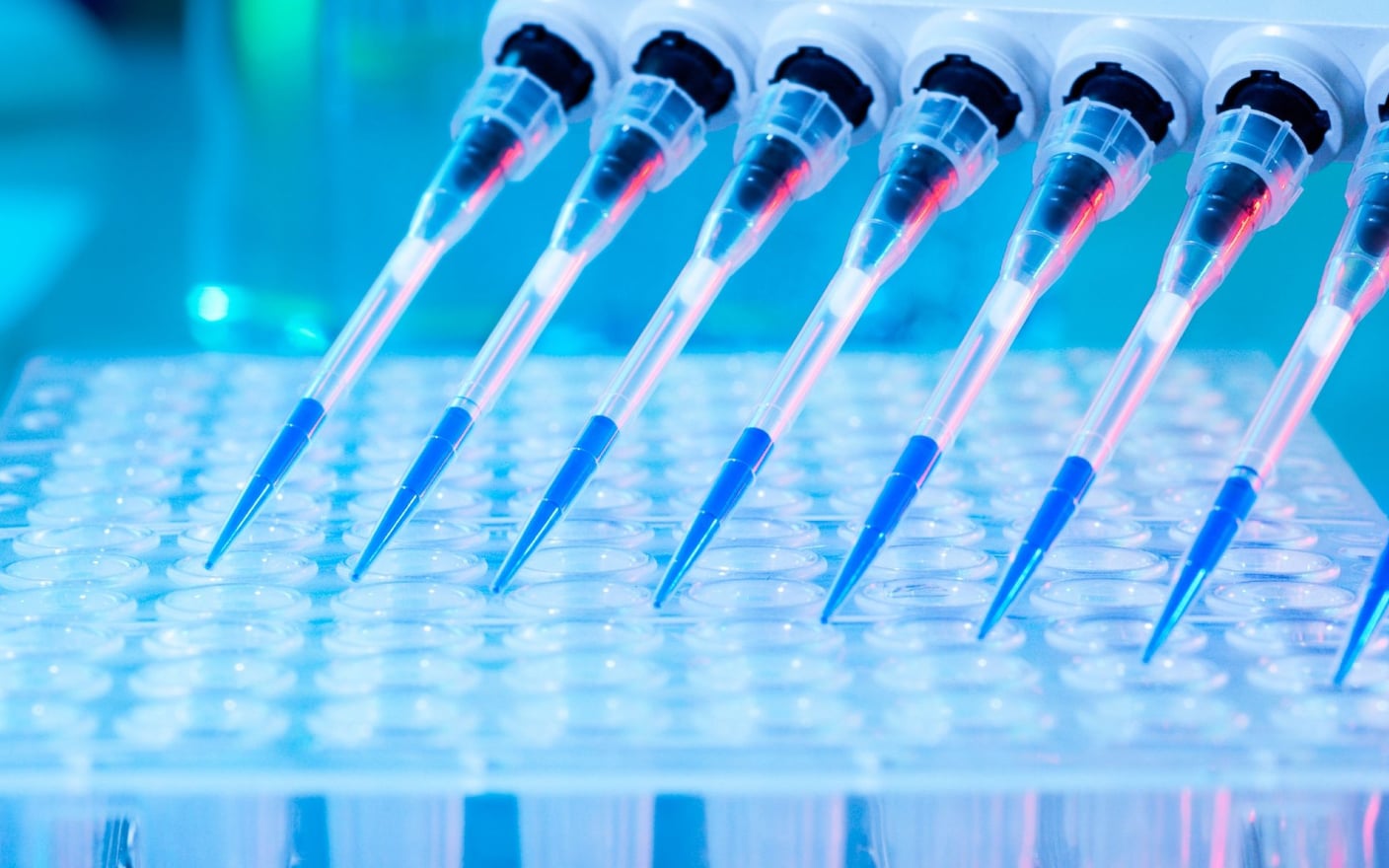Ensuring the medications we rely on are safe and effective from the moment they leave the manufacturer to when they reach the patient involves rigorous stability testing, a critical process that safeguards drug product integrity under diverse environmental conditions. This testing is crucial in biopharmaceutical development to maintain the safety, efficacy, and quality of drug products (DP) and drug substances (DS). It accounts for potential degradation and the stability of different formulations and packaging configurations, providing data to inform labeling, storage, transport, and handling guidelines.
In this blog post, we explore the challenges associated with stability testing drug products, the numerous roles of extractable and leachable testing (E&L), and the ambiguous regulatory environment that leads to the importance of rigorous, repeatable stability testing.
Challenges in stability testing for biopharmaceuticals
Stability testing in biopharmaceuticals presents unique challenges due to the complex molecular structures of biologics and their interaction with plastic and polymer materials. Even materials with a history of safe clinical use can degrade, requiring advanced analytical methods that combine physical, chemical, and biological assays to ensure product safety and compliance.
Thoroughly assessing the inorganic and organic compounds that could potentially put biopharmaceuticals at risk requires a variety of analyses. Commonly used analytical methods include:
Inductively Coupled Plasma (ICP): Detects and identifies metals
Headspace Gas Chromatography-Mass Spectrometry (HSGC-MS): Detects volatile compounds
Gas Chromatography-Mass Spectrometry (GC-MS): Detects semi-volatile compounds
Liquid Chromatography-Mass Spectrometry (LC-MS): Detects semi- to non-volatile compounds
Extractables and leachables regulations
Extractables and leachables (E&L) testing is a cornerstone of pharmaceutical stability testing. Extractables are compounds drawn from materials using aggressive solvents under exaggerated conditions, while leachables are compounds that naturally migrate from the container closure or delivery system into the drug or vice versa under normal conditions.
Manufacturing processes significantly impact product stability, requiring meticulous approaches to maintain product integrity. Current Good Manufacturing Practices (CGMP) ensure drug products’ identity, strength, quality, and purity. Manufacturers must control operations by:
Establishing quality management systems
Using quality raw materials
Implementing robust procedures
Investigating quality deviations
Maintaining reliable testing laboratories
E&L testing on biologics and new modalities
Regulatory guidance on E&L testing for biologic drugs and advanced therapies is comprehensive but evolving as it struggles to keep pace with the dynamic biopharmaceutical industry. Despite the industry’s surge, the regulatory landscape has numerous checks to ensure safe products are developed, distributed, and marketed to consumers.
The International Conference on Harmonization (ICH) is a global organization that creates standards and guidelines for developing, registering, and monitoring pharmaceutical products. Industry and regulatory agencies created the ICH to harmonize the scientific and technical aspects of drug registrations. Its guidelines are designed to ensure safe, effective, and high-quality medicines while also reducing redundancies and extra work caused by documentation requirements in participating regions.
Key ICH Guidelines:
ICH Q1A(R2): Stability Testing of New Drug Substances and Products (2003, updated 2018) defines the stability data package needed to be compliant in Europe, Japan, and the U.S. The guideline encompasses a variety of scientific characteristics of the materials being tested.
ICH Topic Q5C: Focuses on the stability testing of biopharmaceutical products with proteins and polypeptides. It addresses susceptibilities to temperature changes, oxidation, light, ionic content, and shear, as well as how to store products to eliminate the possibility of degradation.
Recognized in more than 140 countries, the U.S. Pharmacopeia (USP) is a scientific, non-profit organization that sets standards for the identity, strength, quality, and purity of medicines, food ingredients, and dietary supplements worldwide. Adhering to these standards ensures regulatory compliance and builds trust with healthcare professionals and consumers.
USP <661> and <1661>: Under revision until December 1, 2025, these chapters address plastic packaging systems and materials of construction. USP <661> guides the use of plastic materials, components, and systems used to package pharmaceuticals, biologics, and dietary supplements, as well as assessing the materials used in these components and systems. USP <1661> describes the plastic materials referred to in <661> and, once the revision is complete, will include four new polymer descriptions and discuss the importance of packaging systems assessment and qualification.
USP <1663>: Addresses the design, justification, and execution of an extractables assessment for pharmaceutical packaging and delivery systems. As an informational chapter, USP <1663> does not establish specific extraction conditions, analytical procedures, or mandatory extractables specifications and acceptance criteria.
USP <665> and <1665>: Details production equipment and patient safety protocols for plastic/polymeric components and systems used in biomanufacturing. USP <665> discusses the characterization of plastic components and systems used to manufacture biopharmaceutical DSs and DPs. USP <1665> outlines how to select and qualify plastic systems used to manufacture APIs, biopharmaceutical drug substances, and biopharmaceutical and pharmaceutical drug products. As currently published, <1665> is an informational chapter, and USP <665> is official and will become enforceable in May 2026.
The BioPhorum Operations Group (BPOG) updated its extractables testing protocol in 2020 based on the extraction capabilities of various solvents over recommended time points. The protocol suggests methods for extractables studies, including sample preparation, extraction conditions, recording test article sample conditions, and reporting data from the analysis of extracts. Manufacturers following the most recent BPOG protocols are most likely compliant with the revised USP <665>, but a lab testing partner can confirm whether new data is necessary.
The bottom line
Stability testing for biopharmaceutical products is multifaceted, involving the meticulous evaluation of extractables and leachables, adherence to CGMP, and comprehensive final packaging testing. The complexity of biologics and extensive data management underscores the need for robust testing frameworks. Staying committed to stringent, continuous testing and engaging experienced lab testing partners helps deliver accurate and timely stability testing data, ensuring patient safety and product efficacy.
Committed to accelerating drug discovery and development, we offer a full range of discovery screening, preclinical development, and clinical drug metabolism and pharmacokinetic (DMPK) platforms and services. With research facilities in the United States (New Jersey) and China (Shanghai, Suzhou, Nanjing, and Nantong), 1,000+ scientists, and over fifteen years of experience in Investigational New Drug (IND) application, our DMPK team at WuXi AppTec are serving 1,600+ global clients, and have successfully supported 1,500+ IND applications.
Talk to a WuXi AppTec expert today to get the support you need to achieve your drug development goals.
Stay Connected
Keep up with the latest news and insights.












